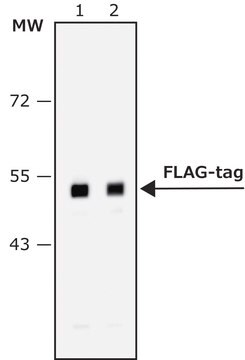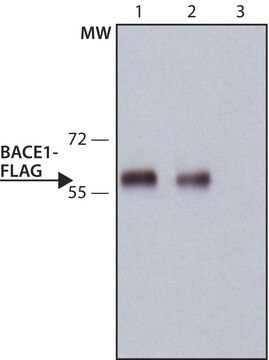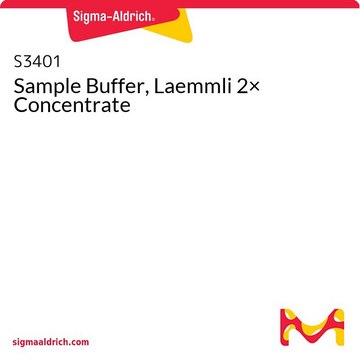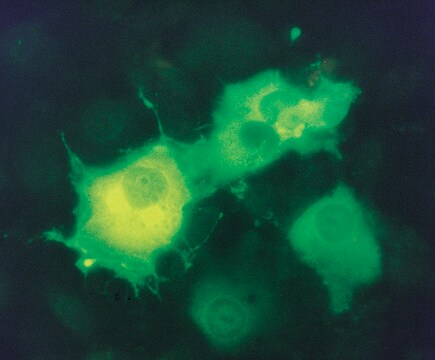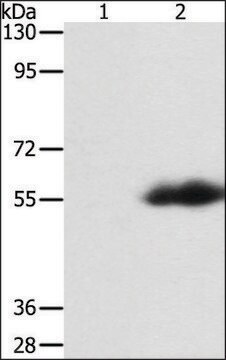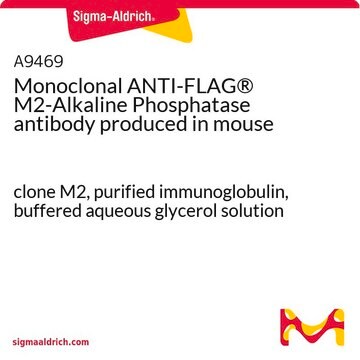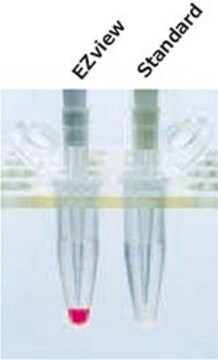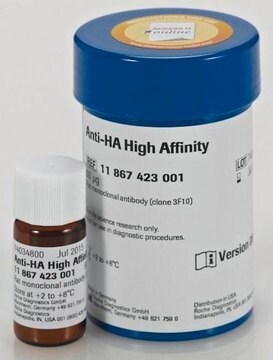SAB4200119
Monoclonal Anti-FLAG-Peroxidase antibody produced in rat
2-4 mg/mL, clone 6F7, purified immunoglobulin
Synonim(y):
Anti-ddddk, Anti-dykddddk
About This Item
Polecane produkty
pochodzenie biologiczne
rat
białko sprzężone
peroxidase conjugate
forma przeciwciała
purified immunoglobulin
rodzaj przeciwciała
primary antibodies
klon
6F7, monoclonal
Formularz
buffered aqueous solution
reaktywność gatunkowa
all
stężenie
2-4 mg/mL
metody
western blot: 1:1,000-1:2,000 using extracts of transfected cells expressing C-terminal FLAG-tagged fusion protein
izotyp
IgG1
sekwencja immunogenna
DYKDDDDK
Warunki transportu
dry ice
temp. przechowywania
−20°C
Opis ogólny
Immunogen
Zastosowanie
Postać fizyczna
Informacje prawne
Nie możesz znaleźć właściwego produktu?
Wypróbuj nasz Narzędzie selektora produktów.
Kod klasy składowania
10 - Combustible liquids
Temperatura zapłonu (°F)
Not applicable
Temperatura zapłonu (°C)
Not applicable
Wybierz jedną z najnowszych wersji:
Masz już ten produkt?
Dokumenty związane z niedawno zakupionymi produktami zostały zamieszczone w Bibliotece dokumentów.
Klienci oglądali również te produkty
Nasz zespół naukowców ma doświadczenie we wszystkich obszarach badań, w tym w naukach przyrodniczych, materiałoznawstwie, syntezie chemicznej, chromatografii, analityce i wielu innych dziedzinach.
Skontaktuj się z zespołem ds. pomocy technicznej
